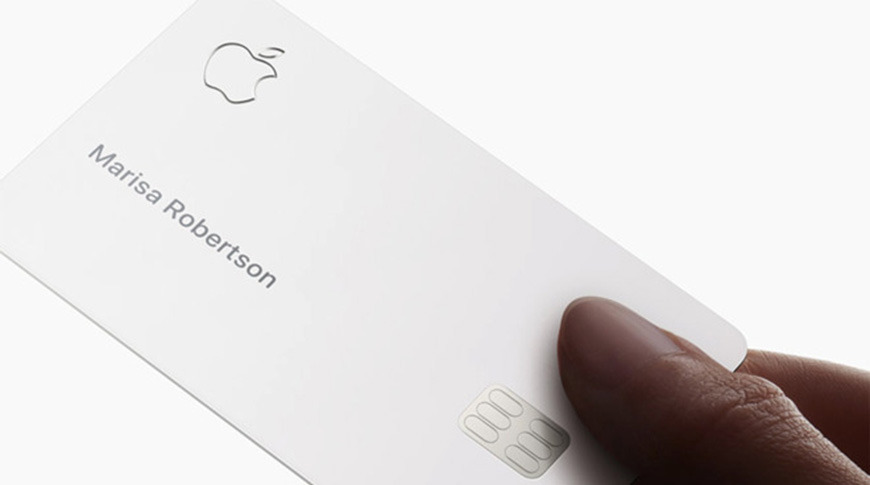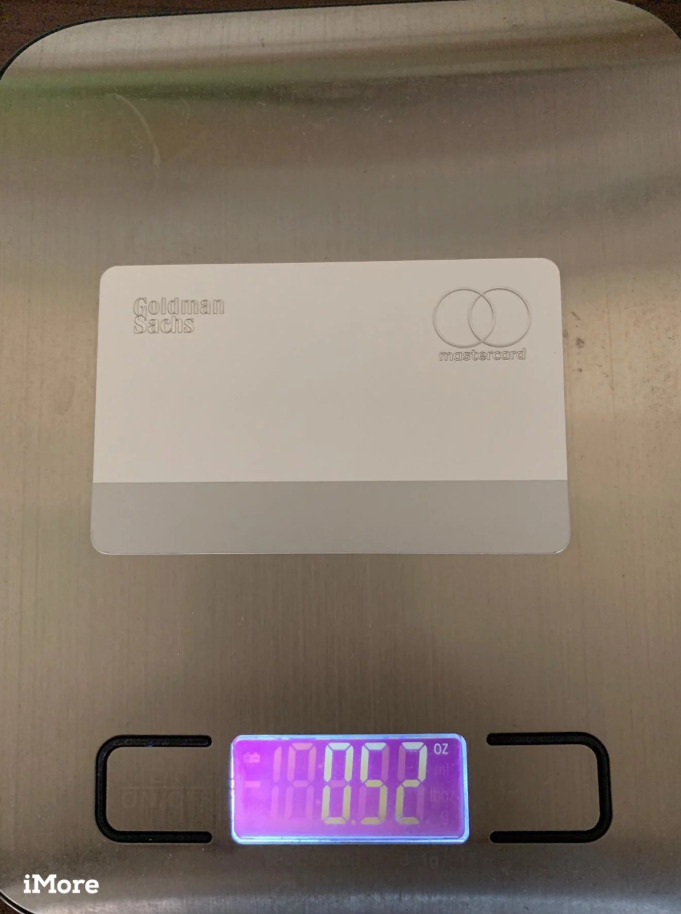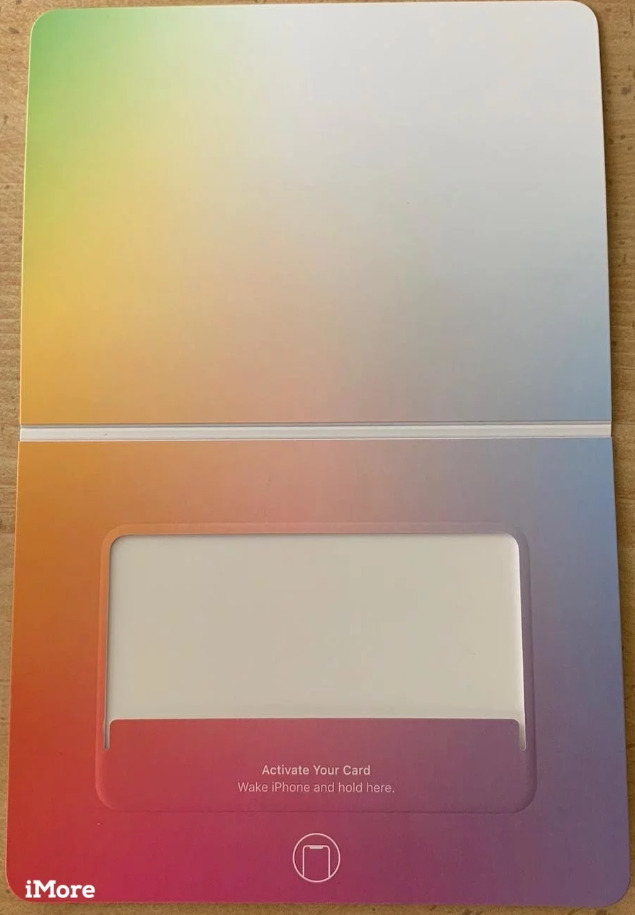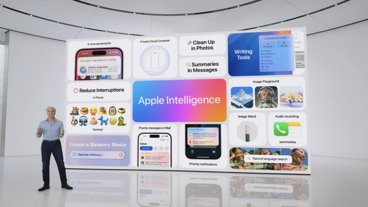An unnamed source has shared images of their Apple Card used for beta testing, showing off the card's packaging as well as its weight.
Apple Store employees in the U.S. have started to receive their Apple Cards and join in a closed beta test a few months ahead of the cards anticipated release.
In one photo, the Apple Card can be seen lying on a scale. It weighs 0.52oz, or roughly 14.75 grams. This is approximately three times heavier than a standard plastic card, but is notably toward the lighter end of the scale for a metal card.
The photos also include the packaging that the card is currently shipping in. The front of the packaging is a plain, matte white, with a recessed Apple logo centered. The inside is a rainbow gradient, and features instructions for activating the card via NFC in the packaging itself.
The card looks much like what we've been shown, with a simple Apple logo engraved on the front, and the Goldman Sachs and Master Card logos engraved on the back.
iMore was the original recipient of Fridays photos of the Apple Card. They were provided by An Apple employee who chose to remain anonymous.
Consumers won't have a chance to try out the new Apple Card for a few more months, but it may be worth it for credit users to check it out. Not only does Apple provide an app that tracks your expenses for you, it pays you to use it, as well.
 Amber Neely
Amber Neely










 William Gallagher
William Gallagher
 Andrew Orr
Andrew Orr
 Malcolm Owen
Malcolm Owen


 Wesley Hilliard
Wesley Hilliard





-m.jpg)




25 Comments
I'm curious to know which credit score bureau Apple is gonna check before approving the card. I froze everything after the Equifax hack.
Dollars in the detail: banks pan for gold in 'data lakes'
"From sending special offers on restaurants to burger-loving current account holders to selling anonymized credit card records, banks are racing to monetize the huge troves of data they hold...."Reading this article -- about how banks mine your credit information the same way Google mines your browsing habits perhaps -- provides perhaps one of the best arguments for the Apple Card: Privacy.
Think about what your credit card knows about you -- which is essentially everything: Where you live, where you go, what you buy, where you buy it, how much you spend each month, how much you make each month -- THEN it gets to the standard personal stuff: Name, address, phone #, Social Security #, etc...